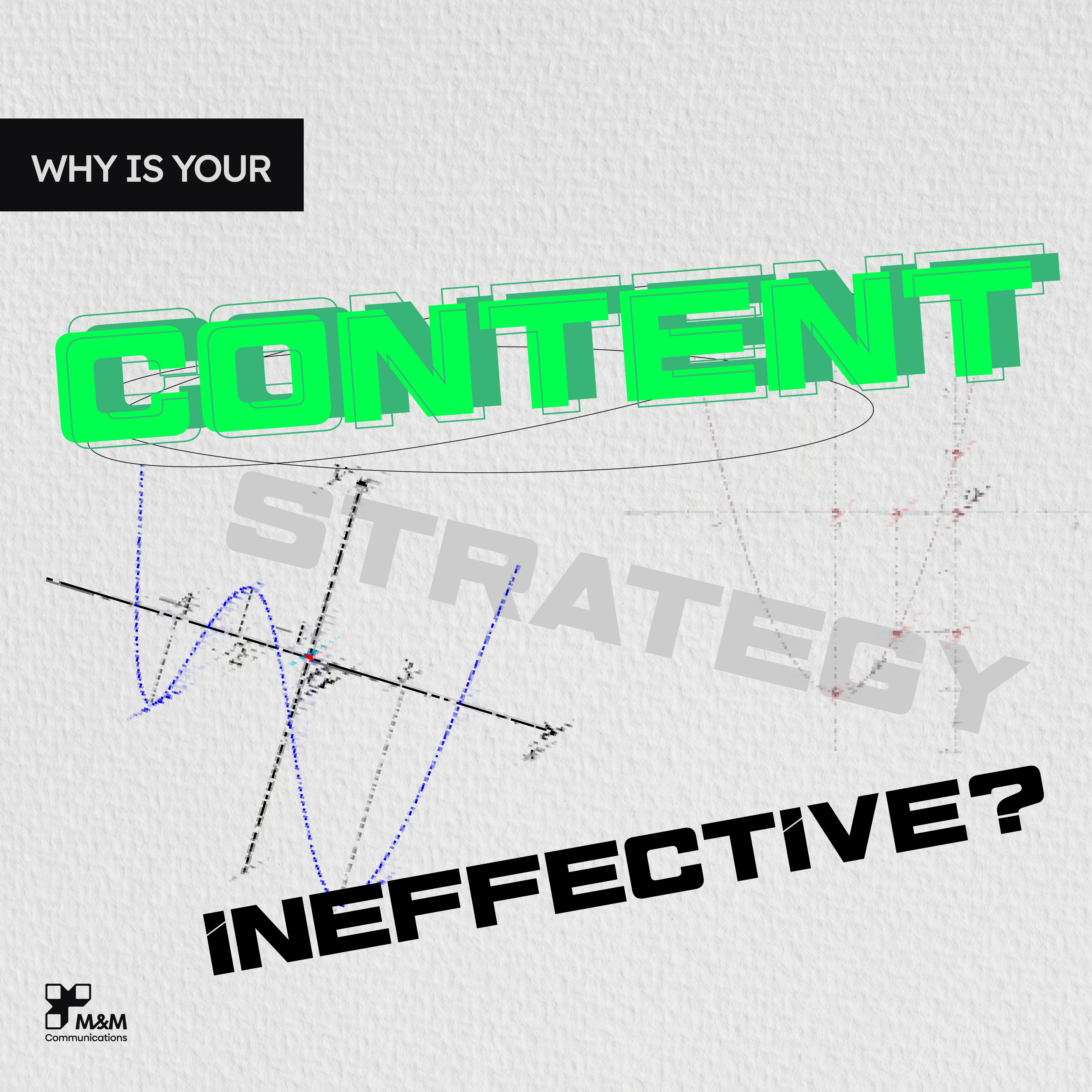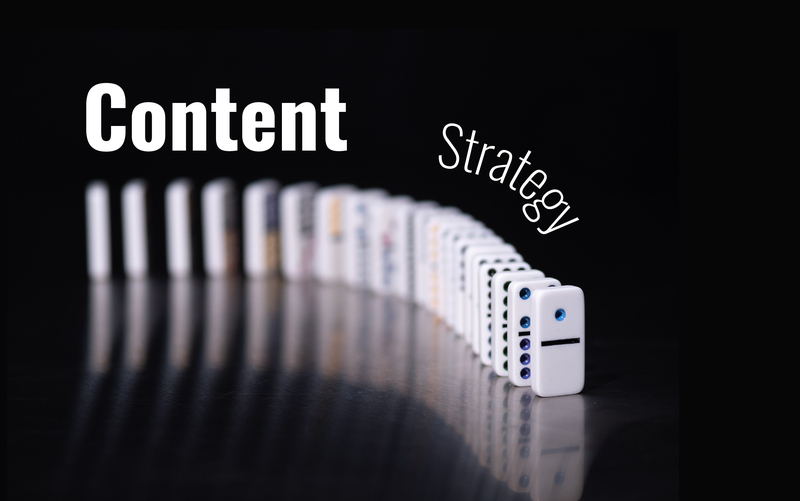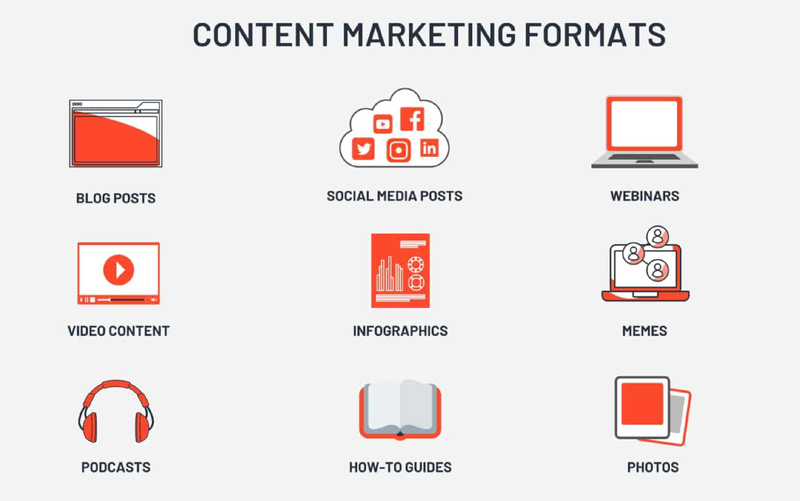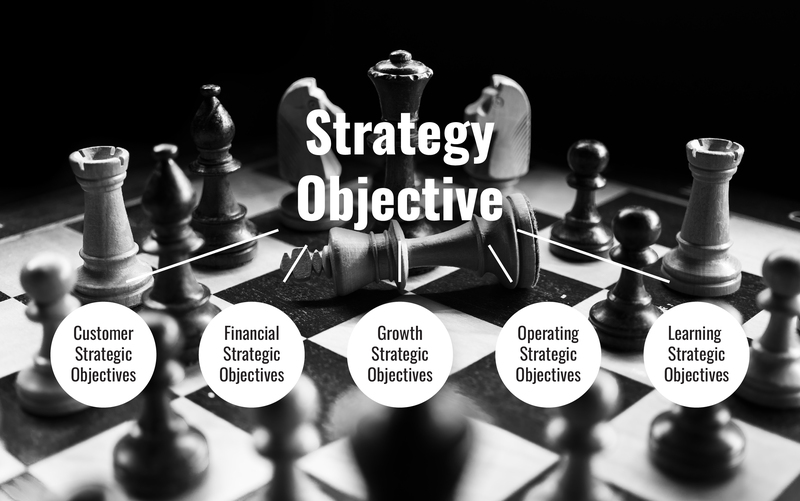
WHY IS YOUR CONTENT STRATEGY INEFFECTIVE?
The internet has exploded, accompanied by the emergence of social media platforms. The advent of giants like Facebook, Google, Instagram, etc., has created a new playground full of potential for advertising products, services, and brands for businesses. However, social media operates according to algorithms, so for advertising products and services successfully, businesses need to have an appropriate content strategy. So, why is your business's content strategy not effective? Let's explore this with M&M Communications in the article below.
What is a content strategy?
To understand the concept of Content Strategy, we need to understand "Content" and "Strategy".

Firstly, the concept of Content encompasses not only words expressed in various forms such as captions, blogs, ads, etc., but also all graphical images, videos, infographics, logos, etc., that carry messages embedded by the business. Meanwhile, originating from military terminology meaning the approach to winning in warfare, Strategy is meticulously designed from a combination of elements such as competitive research, identification of target markets, short-term and long-term goals, as well as methods and implementation approaches to achieve these objectives.
Therefore, Content Strategy is the continuous process of transforming business objectives into a plan, using Content as the primary means to achieve those goals.
Factors that influence the outcome of Content Strategy
Content Format
In Content Strategy, content can be expressed in various formats. These formats may include blog posts, videos, infographics, podcasts, articles, TVCs, etc. Each format allows content about your products, services, or brand to reach customer groups who are inclined to be more interested in that specific format of content.

Therefore, if a business only implements a content strategy through a specific format, it may miss the opportunity to reach target customer segments interested in other types of content formats. Ensure that your content strategy utilizes various content formats to create diversity, avoiding customer boredom, and helping the business easily reach a wider range of customer segments.
Strategic Objective
As an integral part of Content Strategy, the Strategic Objective not only helps businesses measure the effectiveness of their strategy but also supports them in establishing the necessary tasks to achieve the set objectives. Therefore, this is one of the factors that significantly impacts the outcome of a content strategy.

The strategic objective includes targets related to the target audience, target market, market segmentation, KPIs, etc., that the business aims to achieve through its strategies.
Based on the implementation timeframe, strategic objectives can be divided into short-term and long-term objectives. While long-term objectives (over 1 year) play a crucial role in strategic planning, annual or short-term objectives (under 1 year) provide scientific grounds for resource allocation to execute the strategy.
Content
In today's digital age, accessing and receiving customer information has become easier and faster thanks to internet support. Customers tend to ignore content that lacks initial attraction within the first few seconds of exposure on social platforms. Therefore, if the information provided by a business lacks innovation in format or content and becomes "stale" due to similarity with previous content, it can render the business's content strategy ineffective in the competitive market landscape of today.

Certainly, your business isn’t the first brand to talk about the importance of preserving the environment, the benefits of consuming fruits, or the standout features of the iPhone. However, with these topics, instead of exploiting and presenting content in a typical manner, provide readers with a unique perspective and fresh approach through content. Consider placing your business's unique angle on familiar topics to create differentiation and attract attention.
Content Advertising
In Content Marketing, there's a term often used for content that fails to achieve effectiveness with target customers and user experience (persona), known as a "flop". However, to evaluate whether content has flopped or not, businesses cannot solely rely on natural reach metrics but must consider various other related factors. Specifically, even if a business has good, engaging, and distinctive content, it may still not achieve optimal performance without sufficient audience reach. Therefore, with a well-crafted content strategy, you need to consider advertising strategies (such as Facebook ads, Google ads, booking KOL/KOC) for your content.
In cases where a business has an attractive content strategy, content advertising can help achieve viral strategies and quickly expand coverage on social platforms. However, if a business has implemented content advertising but still fails to reach the target audience and persona, the business needs to reconsider its content strategy.
How to Develop an Effective Content Strategy?
Today, content is a means to attract potential customers without relying too much on advertising. It showcases the business's expertise and understanding of customer concerns. Building trust through content cannot be random; businesses need a content strategy to attract and engage customers. So, how can a business achieve an effective content strategy?
While many factors impact a business's content strategy effectiveness, mastering and applying these 5 tips to build a content strategy below can help a business easily achieve a successful content strategy:
Define the goals of the strategy.
Optimize content for SEO.
Create unique and engaging content.
Consider social media channels and advertising strategies to reach your target audience.
Measure performance and adjust strategy based on data.
By implementing these measures, businesses can improve the performance of their content strategy and achieve desired results.
If your business is facing challenges in building a content strategy, let M&M Communications advise and support your business in creating an effective content strategy to achieve the goals set from the beginning.
Conclusion
In today's digital age, customers' meticulousness in selecting information for access demands that businesses develop a smart content strategy. Therefore, to build an effective content strategy, businesses need to stay updated and understand the factors that influence creating a superior content strategy.
